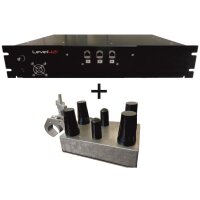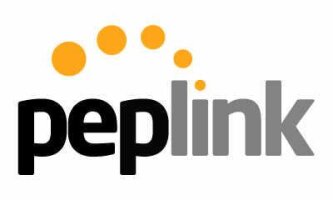Thank you for your interest in our company. Data protection is of particular importance for the management of level421. A use of the internet pages of level421 is basically possible without any indication of personal data. However, if a data subject wishes to make use of special services of our company via our website, it may be necessary to process personal data. If the processing of personal data is necessary and there is no legal basis for such processing, we generally obtain the consent of the data subject.
The processing of personal data, such as the name, address, e-mail address or telephone number of a person concerned, is always carried out in accordance with the basic data protection regulation and in accordance with the country-specific data protection regulations applicable to level421. By means of this data protection declaration, our company would like to inform the public about the type, scope and purpose of the personal data collected, used and processed by us. Furthermore, data subjects will be informed of their rights by means of this data protection declaration.
level421, as the person responsible for the processing, has implemented numerous technical and organisational measures to ensure that the personal data processed via this website is protected as completely as possible. Nevertheless, Internet-based data transmissions can have security gaps, so that absolute protection cannot be guaranteed. For this reason, every person concerned is free to transmit personal data to us by alternative means, for example by telephone.
1 Definitions
The data protection declaration of level421 is based on the terms used by the European guideline and regulation provider when the basic data protection regulation (DS-GVO) was issued. Our data protection declaration should be easy to read and understand both for the public and for our customers and business partners. To ensure this, we would like to explain the terms used in advance.
We use the following terms, among others, in this data protection declaration:
a) personal data
Personal data are all information relating to an identified or identifiable natural person (hereinafter "data subject"). Identifiable is a natural person who can be identified directly or indirectly, in particular by assignment to an identifier such as a name, an identification number, location data, an online identifier or one or more special characteristics that express the physical, physiological, genetic, psychological, economic, cultural or social identity of that natural person.
(b) person concerned
Data subject is any identified or identifiable natural person whose personal data are processed by the controller.
c) Processing
Processing means any operation or series of operations carried out with or without the aid of automated procedures in relation to personal data, such as the collection, collection, organisation, sorting, storage, adaptation or alteration, reading, retrieval, use, disclosure by transmission, dissemination or any other form of provision, comparison or linking, restriction, erasure or destruction.
d) Restriction of processing
Restriction of processing is the marking of stored personal data with the aim of restricting their future processing.
e) Profiling
Profiling is any form of automated processing of personal data consisting in the use of such personal data to evaluate certain personal aspects relating to a natural person, in particular to analyse or predict aspects relating to the performance of work, economic situation, health, personal preferences, interests, reliability, behaviour, location or relocation of that natural person.
f) Pseudonymization
Pseudonymisation is the processing of personal data in such a way that the personal data can no longer be assigned to a specific data subject without the use of additional information, provided that this additional information is kept separately and is subject to technical and organisational measures which ensure that the personal data are not assigned to an identified or identifiable natural person.
g) controller or controller
The data controller or controller is the natural or legal person, public authority, institution or other body which alone or jointly with others decides on the purposes and means of processing personal data. Where the purposes and means of such processing are laid down by Union law or by the law of the Member States, the controller or the specific criteria for his appointment may be laid down in accordance with Union law or the law of the Member States.
h) contract processors
Processor is a natural or legal person, authority, institution or other body that processes personal data on behalf of the data controller.
i) Recipient
Recipient is a natural or legal person, authority, institution or other body to which personal data is disclosed, regardless of whether it is a third party or not. However, authorities which may receive personal data under Union law or the law of the Member States within the framework of a particular investigation mandate shall not be regarded as recipients.
j) third parties
A third party is a natural or legal person, authority, institution or other body other than the data subject, the data processor, the data processor and the persons authorised to process the personal data under the direct responsibility of the data processor or the data processor.
k) Consent
Consent shall mean any informed and unequivocal expression of will voluntarily given by the data subject in the particular case in the form of a declaration or other clear affirmative act by which the data subject indicates his or her consent to the processing of personal data concerning him or her.
2. the name and address of the controller
The person responsible within the meaning of the Basic Data Protection Regulation, other data protection laws in force in the Member States of the European Union and other provisions of a data protection nature is:
level421
Kuefergasse 11
89073 Ulm
Germany
Phone: 073114064700
E-mail: info@level421.com
Website: www.level421.com
3. cookies
The websites of level421 use cookies. Cookies are text files which are stored on a computer system via an Internet browser.
Many websites and servers use cookies. Many cookies contain a so-called cookie ID. A cookie ID is a unique identifier of the cookie. It consists of a string of characters through which Internet pages and servers can be assigned to the specific Internet browser in which the cookie was stored. This enables the visited Internet pages and servers to distinguish the individual browser of the person concerned from other Internet browsers that contain other cookies. A particular Internet browser can be recognized and identified by its unique cookie ID.
Through the use of cookies, level421 can provide users of this website with more user-friendly services that would not be possible without cookies.
By means of a cookie, the information and offers on our website can be optimized for the user. Cookies enable us, as already mentioned, to recognize the users of our website. The purpose of this recognition is to make it easier for users to use our website. For example, the user of a website that uses cookies does not have to re-enter his access data each time he visits the website because this is taken over by the website and the cookie stored on the user's computer system. Another example is the cookie of a shopping basket in the online shop. The online shop remembers the items that a customer has placed in the virtual shopping basket via a cookie.
The person concerned can prevent the setting of cookies by our website at any time by means of an appropriate setting of the Internet browser used and thus permanently object to the setting of cookies. Furthermore, cookies that have already been set can be deleted at any time via an Internet browser or other software programs. This is possible in all common internet browsers. If the person concerned deactivates the setting of cookies in the Internet browser used, not all functions of our Internet site may be fully usable.
4. collection of general data and information
The website of level421 collects a series of general data and information every time a person or an automated system accesses the website. This general data and information is stored in the log files of the server. We may record (1) the browser types and versions used, (2) the operating system used by the accessing system, (3) the website from which an accessing system reaches our website (so-called referrer), (4) the subwebsites which are accessed via an accessing system on our website, (5) the date and time of access to the Website, (6) an Internet Protocol address (IP address), (7) the Internet service providers of the accessing system, and (8) other similar data and information used for security purposes in the event of attacks on our information technology systems.
When using this general data and information level421 does not draw any conclusions about the person concerned. Rather, this information is required to (1) correctly deliver the contents of our website, (2) optimize the contents of our website and the advertising for it, (3) ensure the permanent functionality of our information technology systems and the technology of our website, and (4) provide law enforcement authorities with the information necessary for criminal prosecution in the event of a cyber attack. These anonymously collected data and information are therefore evaluated by level421 statistically and with the aim of increasing data protection and data security in our company in order ultimately to ensure an optimal level of protection for the personal data processed by us. The anonymous data of the server log files are stored separately from all personal data provided by a person concerned.
5. registration on our website
The data subject may register on the website of the controller, providing personal data. The personal data transferred to the controller is determined by the respective input mask used for registration. The personal data entered by the data subject are collected and stored exclusively for internal use by the controller and for the data subject's own purposes. The controller may arrange for the data to be transferred to one or more processors, such as a parcel service, who also uses the personal data exclusively for internal use attributable to the controller.
Furthermore, the IP address assigned by the Internet Service Provider (ISP) to the data subject, the date and time of registration are stored when the data subject registers on the data controller's website. This data is stored against the background that this is the only way to prevent misuse of our services and, if necessary, to enable us to investigate criminal offences committed. In this respect, the storage of this data is necessary to protect the data controller. This data will not be passed on to third parties unless there is a legal obligation to pass it on or the passing on serves the purpose of criminal prosecution.
Registration of the data subject with the voluntary provision of personal data serves the controller to offer the data subject content or services which, by their nature, can only be offered to registered users. Registered persons are free to modify the personal data provided during registration at any time or to have them completely deleted from the database of the data controller.
The controller shall at all times, upon request, inform each data subject of the personal data relating to that data subject. Furthermore, the controller shall correct or delete personal data at the request or notice of the data subject, provided that there is no legal obligation to keep such data in safekeeping. A data protection officer named in this data protection declaration and all the employees of the controller are available to the data subject as contact persons in this context.
6. subscription to our newsletter
On the website of level421, users are given the opportunity to subscribe to our company's newsletter. Which personal data are transmitted to the person responsible for processing when ordering the newsletter is determined by the input mask used for this purpose.
level421 regularly informs its customers and business partners about company offers by means of a newsletter. The newsletter of our company can only be received by the person concerned if (1) the person concerned has a valid e-mail address and (2) the person concerned registers for the newsletter dispatch. For legal reasons, a confirmation e-mail in the double opt-in procedure is sent to the e-mail address entered by the person concerned for the first time for sending the newsletter. This confirmation e-mail serves to check whether the owner of the e-mail address has authorized the receipt of the newsletter as the person concerned.
When registering for the newsletter, we also store the IP address of the computer system used by the person concerned at the time of registration assigned by the Internet Service Provider (ISP) as well as the date and time of registration. The collection of this data is necessary in order to trace the (possible) misuse of a data subject's e-mail address at a later point in time and therefore serves the legal protection of the data controller.
The personal data collected when registering for the newsletter will be used exclusively for sending our newsletter. Furthermore, subscribers to the newsletter may be informed by e-mail if this is necessary for the operation of the newsletter service or for registration, as could be the case in the event of changes to the newsletter offer or changes in the technical conditions. The personal data collected in the context of the newsletter service will not be passed on to third parties. The subscription to our newsletter can be cancelled by the person concerned at any time. The consent to the storage of personal data, which the person concerned has given us for the newsletter dispatch, can be revoked at any time. For the purpose of revoking your consent, you will find a corresponding link in every newsletter. It is also possible at any time to unsubscribe directly from the newsletter dispatch on the website of the controller or to inform the controller in any other way.
7. newsletter tracking
The level421 newsletters contain so-called tracking pixels. A tracking pixel is a miniature graphic embedded in e-mails sent in HTML format to enable log file recording and analysis. This allows a statistical evaluation of the success or failure of online marketing campaigns to be carried out. With the embedded pixel-code, level421 can recognize if and when an e-mail was opened by an affected person and which links in the e-mail were called by the affected person.
Such personal data collected via the tracking pixels contained in the newsletters are stored and evaluated by the data controller in order to optimise the dispatch of the newsletter and to adapt the content of future newsletters even better to the interests of the person concerned. This personal data will not be passed on to third parties. Persons concerned are entitled at any time to revoke the respective separate declaration of consent given via the double opt-in procedure. After revocation, this personal data will be deleted by the data controller. If you unsubscribe from receiving the newsletter, level421 automatically interprets this as a revocation.
8. possibility to contact us via the website
Due to legal regulations, the website of level421 contains information that enables quick electronic contact with our company and direct communication with us, which also includes a general address for so-called electronic mail (e-mail address). If a data subject contacts the data controller via e-mail or a contact form, the personal data transmitted by the data subject will be stored automatically. Such personal data voluntarily provided by a data subject to the controller will be stored for the purpose of processing or contacting the data subject. This personal data is not passed on to third parties.
9. comment function in the blog on the website
level421 offers users the opportunity to leave individual comments on individual blog posts on a blog located on the website of the data controller. A blog is a portal on a website, usually open to the public, in which one or more people who are called bloggers or web bloggers can post articles or write down thoughts in so-called blog posts. The blog posts can usually be commented by third parties.
If a person leaves a comment in the blog published on this website, not only the comments left by the person concerned but also details of the time of entering the comment and the user name (pseudonym) chosen by the person concerned are stored and published. Furthermore, the IP address assigned to the person concerned by the Internet service provider (ISP) is logged. This IP address is stored for security reasons and in the event that the person concerned violates the rights of third parties or posts illegal content by submitting a comment. The storage of this personal data is therefore in the personal interest of the data controller, so that he or she can exculpate himself or herself in the event of a violation of the law. The personal data collected will not be disclosed to third parties, unless such disclosure is required by law or serves the legal defence of the data controller.
10. subscription of comments in the blog on the website
The comments made in the blog of level421 can be subscribed to by third parties. In particular, it is possible for a commentator to subscribe to the comments that follow his comment on a particular blog post.
If a data subject chooses to subscribe to comments, the controller sends an automatic confirmation email to double opt-in to verify that the owner of the specified email address has actually chosen this option. The option to subscribe to comments can be cancelled at any time.
11 Routine deletion and blocking of personal data
The controller shall process and store the personal data of the data subject only for the time necessary to achieve the data retention purpose or to the extent provided for by the European regulator or other legislator in laws or regulations to which the controller is subject.
If the storage purpose ceases to apply or if a storage period prescribed by the European Directive and Regulation Giver or another competent legislator expires, the personal data is routinely blocked or deleted in accordance with the statutory provisions.
12. rights of the data subject
a) Right to confirmation
Every data subject shall have the right granted by the European legislator of directives and regulations to require the controller to confirm whether personal data concerning him/her are being processed. If a data subject wishes to exercise this right of confirmation, he or she may contact our data protection officer or another employee of the data controller at any time.
b) Right to information
Any person concerned by the processing of personal data shall have the right granted by the European legislator of directives and regulations to obtain, at any time and free of charge, information from the controller concerning the personal data relating to him/her stored and a copy of that information. Furthermore, the European regulator has granted the data subject the following information:
the processing purposes
the categories of personal data to be processed
the recipients or categories of recipients to whom the personal data have been or are still being disclosed, in particular recipients in third countries or international organisations
if possible, the planned duration for which the personal data will be stored or, if this is not possible, the criteria for determining this duration
the existence of a right of rectification or deletion of personal data concerning him or of a restriction on processing by the controller or of a right of opposition to such processing
the existence of a right of appeal to a supervisory authority
if the personal data is not collected from the data subject: All available information about the origin of the data
the existence of automated decision-making, including profiling in accordance with Article 22(1) and (4) DS-GMO and, at least in these cases, meaningful information on the logic involved and the scope and intended effects of such processing for the data subject
Furthermore, the data subject has a right of access to information as to whether personal data have been transferred to a third country or to an international organisation. If this is the case, the data subject also has the right to obtain information on the appropriate guarantees in connection with the transfer.
If a data subject wishes to exercise this right to information, he or she may contact our data protection officer or another employee of the data controller at any time.
(c) Right to correction
Any person data subject to the processing of personal data shall have the right granted by the European legislator of directives and regulations to request the immediate correction of inaccurate personal data concerning him/her. Furthermore, taking into account the purposes of the processing, the data subject has the right to request the completion of incomplete personal data, including by means of a supplementary declaration.
If a data subject wishes to exercise this right of rectification, he may contact our data protection officer or another employee of the controller at any time.
d) Right to cancellation (right to be forgotten)
Any person concerned by the processing of personal data shall have the right granted by the European legislator of directives and regulations to require the data controller to request that the personal data concerning him/her be deleted immediately, provided that one of the following reasons applies and insofar as the processing is not necessary:
as based pursuant to Article 6(1)(a) DS-GMO or Article 9(2)(a) DS-GMO, and there is no other legal basis for the processing.
The data subject opposes processing under Article 21(1) DS-GMO and there are no overriding legitimate grounds for processing or the data subject opposes processing under Article 21(2) DS-GMO.
The personal data have been processed unlawfully.
The deletion of personal data is necessary to fulfil a legal obligation under Union law or the law of the Member States to which the data controller is subject.
The personal data was collected in relation to information society services offered in accordance with Art. 8 para. 1 DS-GMO.
If one of the above-mentioned reasons applies and a data subject wishes to have personal data stored at level421 deleted, he or she can contact our data protection officer or another employee of the data controller at any time. The data protection officer of level421 or another employee will arrange for the request for deletion to be complied with immediately.
If the personal data was made public by level421 and our company is responsible pursuant to Art. 17 Para. 1 DS-GMO to delete personal data, level421 will take appropriate measures, also of a technical nature, taking into account the available technology and the implementation costs, to ensure that other persons responsible for data processing who process the published personal data, to inform the data subject that the data subject has requested the deletion of all links to such personal data or of copies or replications of such personal data from those other data controllers, unless processing is necessary. The data protection officer of level421 or another employee will take the necessary steps in individual cases.
(e) Right to limitation of processing
Any person data subject to the processing of personal data shall have the right granted by the European legislator of directives and regulations to require the controller to restrict the processing if one of the following conditions is met:
The accuracy of the personal data is disputed by the data subject for a period that enables the data controller to verify the accuracy of the personal data.
The processing is unlawful, the data subject refuses to delete the personal data and instead requests that the use of the personal data be restricted.
The data controller no longer needs the personal data for the purposes of the processing, but the data subject needs them to assert, exercise or defend legal claims.
The data subject has lodged an objection to the processing pursuant to Art. 21 para. 1 DS-GMO and it has not yet been determined whether the legitimate reasons of the data subject outweigh those of the data subject.
If one of the above conditions is fulfilled and a data subject wishes to request the restriction of personal data stored at level421, he/she may contact our data protection officer or another employee of the data controller at any time. The data protection officer of level421 or another employee will arrange for the processing to be restricted.
f) Right to data transferability
Any data subject shall have the right granted by the European legislator to receive personal data relating to him/her provided by the data subject to a data controller in a structured, current and machine-readable format. It also has the right to transmit this data to another data controller without obstruction by the data controller to whom the personal data have been provided, provided that the processing is based on the consent provided for in Article 6(1)(a) DS-GMO or Article 9(2)(a) DS-GMO or on a contract pursuant to Article 6(1)(a) DS-GMO. 6(1)(b) DS-GMO and processing is carried out by means of automated procedures, except where processing is necessary for the performance of a task in the public interest or in the exercise of official authority conferred on the controller.
Furthermore, in exercising his right to data transferability pursuant to Article 20(1) DS-GMO, the data subject has the right to obtain that the personal data be transferred directly by a data controller to another data controller, provided this is technically feasible and provided that the rights and freedoms of other persons are not affected thereby.
To assert the right to data transferability, the person concerned can contact the data protection officer appointed by level421 or another employee at any time.
g) Right of objection
Any person concerned by the processing of personal data shall have the right granted by the European legislator for reasons arising from their particular situation to object at any time to the processing of personal data concerning them under Article 6(1)(e) or (f) of the DS-GMO. This also applies to profiling based on these provisions.
In the event of an objection, level421 will no longer process the personal data, unless we can prove compelling reasons worthy of protection for the processing, which outweigh the interests, rights and freedoms of the data subject, or the processing serves to assert, exercise or defend legal claims.
If level421 processes personal data for direct marketing purposes, the person concerned has the right to object at any time to the processing of personal data for the purpose of such advertising. This also applies to profiling insofar as it is connected with such direct advertising. If the data subject objects to level421 processing for direct advertising purposes, level421 will no longer process the personal data for these purposes.
Furthermore, the data subject has the right to object to the processing of personal data concerning him/her which is carried out at level421 for scientific or historical research purposes or for statistical purposes pursuant to Art. 89 para. 1 DS-GMO, for reasons arising from his particular situation, unless such processing is necessary to fulfil a task in the public interest.
To exercise the right of objection, the person concerned can directly contact the data protection officer of level421 or another employee. The data subject shall also be free to exercise his right of opposition in relation to the use of information society services by means of automated procedures using technical specifications, notwithstanding Directive 2002/58/EC.
h) Automated decisions in individual cases including profiling
Any data subject shall have the right granted by the European legislator of directives and regulations not to be subject to a decision based exclusively on automated processing, including profiling, which has legal effect against him or significantly affects him in a similar manner, provided that the decision is not (1) necessary for the conclusion or performance of a contract between the data subject and the controller, or (2) under Union or national law
If the decision (1) is necessary for the conclusion or performance of a contract between the data subject and the data controller or (2) is taken with the express consent of the data subject, level421 shall take appropriate measures to safeguard the rights, freedoms and legitimate interests of the data subject, including at least the right to obtain the intervention of a data controller, to state his own position and to challenge the decision.
If the data subject wishes to assert rights relating to automated decisions, he/she may contact our data protection officer or another employee of the controller at any time.
i) Right to revoke consent under data protection law
Any person concerned by the processing of personal data has the right granted by the European legislator of directives and regulations to revoke consent to the processing of personal data at any time.
If the data subject wishes to exercise his/her right to withdraw his/her consent, he/she may contact our data protection officer or another employee of the controller at any time.
13 Data protection for applications and in the application procedure
The controller collects and processes the personal data of applicants for the purpose of processing the application procedure. Processing may also be carried out electronically. This is particularly the case if an applicant sends corresponding application documents to the controller by electronic means, for example by e-mail or via a web form on the website. If the controller concludes an employment contract with an applicant, the data transmitted will be stored for the purpose of processing the employment relationship in compliance with the statutory provisions. If the controller does not conclude an employment contract with the applicant, the application documents shall be automatically deleted two months after notification of the decision of refusal, provided that no other legitimate interests of the controller stand in the way of deletion. Other legitimate interest in this sense is, for example, a burden of proof in proceedings under the General Equal Treatment Act (AGG).
14. legal basis of the processing
Art. 6 I lit. a DS-GMO serves our company as a legal basis for processing operations for which we obtain consent for a specific processing purpose. If the processing of personal data is necessary for the performance of a contract to which the data subject is a party, as is the case for example with processing operations necessary for the delivery of goods or the provision of other services or consideration, the processing is based on Art. 6 I lit. b DS-GMO. The same applies to such processing processes that are necessary to carry out pre-contractual measures, for example in cases of enquiries about our products or services. If our company is subject to a legal obligation which requires the processing of personal data, for example to fulfil tax obligations, the processing is based on Art. 6 I lit. c DS-GMO. In rare cases, the processing of personal data may become necessary to protect the vital interests of the data subject or another natural person. This would be the case, for example, if a visitor were injured in our company and his name, age, health insurance data or other vital information had to be passed on to a doctor, a hospital or other third parties. The processing would then be based on Art. 6 I lit. d DS-GMO. Ultimately, processing operations could be based on Art. 6 I lit. f DS-GMO. Processing operations which are not covered by any of the aforementioned legal bases are based on this legal basis if processing is necessary to safeguard a legitimate interest of our company or a third party, provided that the interests, fundamental rights and freedoms of the data subject do not prevail. Such processing procedures are permitted to us in particular because they have been specifically mentioned by the European legislator. In this respect, it took the view that a legitimate interest could be assumed if the person concerned is a customer of the person responsible (recital 47, second sentence, DS-GMO).
15. legitimate interests in the processing pursued by the controller or a third party
If the processing of personal data is based on Article 6 I lit. f DS-GMO, it is in our legitimate interest to conduct our business for the well-being of all our employees and our shareholders.
16. duration for which the personal data is stored
The criterion for the duration of the storage of personal data is the respective legal retention period. After the expiry of this period, the corresponding data will be routinely deleted, provided that it is no longer necessary for the fulfilment or initiation of the contract.
17. legal or contractual provisions for the provision of personal data; necessity for the conclusion of the contract; obligation of the data subject to provide the personal data; possible consequences of failure to provide them
We inform you that the provision of personal data is partly required by law (e.g. tax regulations) or may also result from contractual regulations (e.g. information on the contractual partner). In some cases, it may be necessary for a contract to be concluded if a data subject provides us with personal data which must subsequently be processed by us. For example, the person concerned is obliged to provide us with personal data if our company enters into a contract with him/her. Failure to provide personal data would mean that the contract with the data subject could not be concluded. Prior to the provision of personal data by the data subject, the data subject must contact our data protection officer. Our data protection officer will inform the data subject on a case-by-case basis whether the provision of personal data is required by law or contract or required for the conclusion of the contract, whether there is an obligation to provide the personal data and what consequences the failure to provide the personal data would have.
18. existence of automated decision making
As a responsible company, we do without automatic decision-making or profiling.
Privacy Protection Advise, For HotSpot Systems With Integrated Payment Function
Before using of our services we kindly ask you to read this privacy protection advice carefully. The used words “we”, “us” or “our” refer to the HotSpot provider level421, located in 89073 Ulm, Kuefergasse 11, registered with Number HRB 5394 at Amtsgericht Ulm/Germany, so called “provider” in the following.
They refer exclusively on provided services in the field of FREE WIFI HotSpots, which the provider also operates on behalf of third party.
Relevant for all these HotSpots are the following advices which we kindly ask to respect:
The General Risks Of Navigating Via Any Insecure Open Internet Infrastructure.
The provider operates public WIFI HotSpots that by definition offer open network access for all. This makes it possible for the provider to provide a simple and easy method of connectivity for as many devices as possible.
However, this exposes the potential risk that a third party could intercept these signals if a device or application the customer is using does not encrypt the data it is sending over the network.
The provider encrypts the customer’s data when he registers of log on to the provider’s network only. The provider is using SSL certificates for these reasons on any pages, where personal data needs to get entered.
In this rare case a third party attempts to mimic a ‘real’ hotspot and have connected the customer to it in order to collect data from his device.
The customer has to check that the venue landing page appears and that the security certificate of the page is correct. If the customer has a registered device on the provider’s network it should also tell the customer that he is logged in.
Other risks of using Public FREE WIFI systems are no different from using the Internet in general. The most important task is to ensure that the programs, websites and services the customer uses while browsing are from safe sources and to use and update protection mechanisms, such as firewalls and virus checkers.
The following steps shall be observed to protect a device:
- Installation and constant updates of well known antivirus software and personal firewalls can protect a device.
- The customer shall make sure to log out when the session ends.
- The customer shall make sure any ‘Keep me logged in’ check-boxes are not ticked.
- The computer needs to be passwordprotected
- The customer shall make sure that he doesn’t leave his laptop unattended in a public place – or lock it if it’s absolutely needed to leave it
- The customer shall be careful not to leave credit card details exposed on-screen
- It should be made sure sites are saved before entering personal banking details.
- The padlock icon shall be clicked to confirm the page is secure and https encrypted.
- Web addresses starting ‘https’ means the page is encrypted and customer details are secured.
- The customer shall be careful when responding to e-mails any personal or financial details shall not be divulge, and no bank will ever ask for password or PIN.
- The customer shall shop sensibly. Checking sites is absolutely required.
Handling of personal customer data
This privacy protection advice is according to the actual privacy policy of Germany. The regulations valid for Germany count for it.
The protection of personal customer data during the business processes is very important and a special concern of the provider. If the customer allocates personal data to the provider, they will only be used in the framework of the valid German privacy protection advices.
All pages which request personal data are encrypted by SSL.
The provider ensures to the customer that no information in connection with personal details will be unwitting collected (e. g. name, address, phone number, e-mail address), except the customer decides optional.
The provider stores the customer’s information (e. g. timeframe of registration, selected package) on behalf of allocation of service.
Metadata, which have to be stored by the provider regarding to regulatory framework will stored generally anonymous. Only after explicit advice of internal data protection officer of the provider or after judicial advice the creation of personal relations will happen.
Personal data provided to the provider by the customer means that the customer gives his approval to store data for execute of service for a legally defined timeframe.
The provider excludes liability for damages caused by unauthorized usage, note to unauthorized persons or loss of username and password.
The customer will not get any advertisement, except the customer wants that explicit.
Freedom Of Information
The customer shall contact the provider in case of reasonable acceptance of wrong stored personal data or in case of change or deletion of data. The provider also informs the customer about the stored data when requested in written form.
Security Of Personal Data
Considerably security arrangements were made for protection of access of third party or abuse of personal customer data, stored by the provider. Personal data will not be sold, rented or handed over to third party. All data will only be handed over to public agency if this is statutory.
The provider will not work with public security agencies outside of business headquarters in Germany. The regulations valid in Germany are crucial.
All data will be stored on servers inside of the European Union.
Security Separation
The internet access via FREE WIFI will get disconnected after 30 minutes at the latest (Session Time Out).
In case of inactivity the internet access will be disconnected after 15 minutes. Inactivity is the case if there is no communication between the device of the customer and the HotSpot.
A disconnection after 15 minutes will also be effected when the internet connection was not ended accordingly (“Logout”-Button at HotSpot portal). An immediately again dial-in is possible in frame of FREE WIFI regulation.
Transmission Of Payment Details To Third Party
During the customers online payment no credit card details (card number, validity) will be stored or handed over to third party, because this will be done directly by ClearingTransaction or Payment-Processor.
Therefor a direct forwarding to the payment-sites of the service provider will occur. The provider has ensured with its contracts that all privacy protection providions will be observed.
.webp)
.png) EU
EU








































